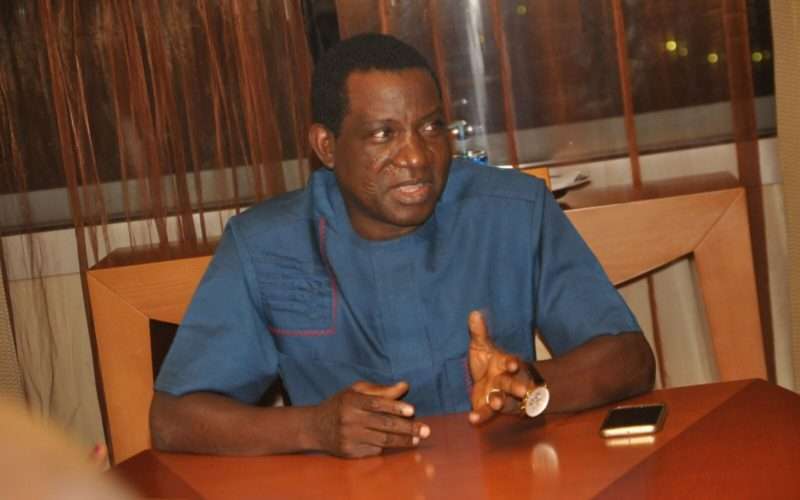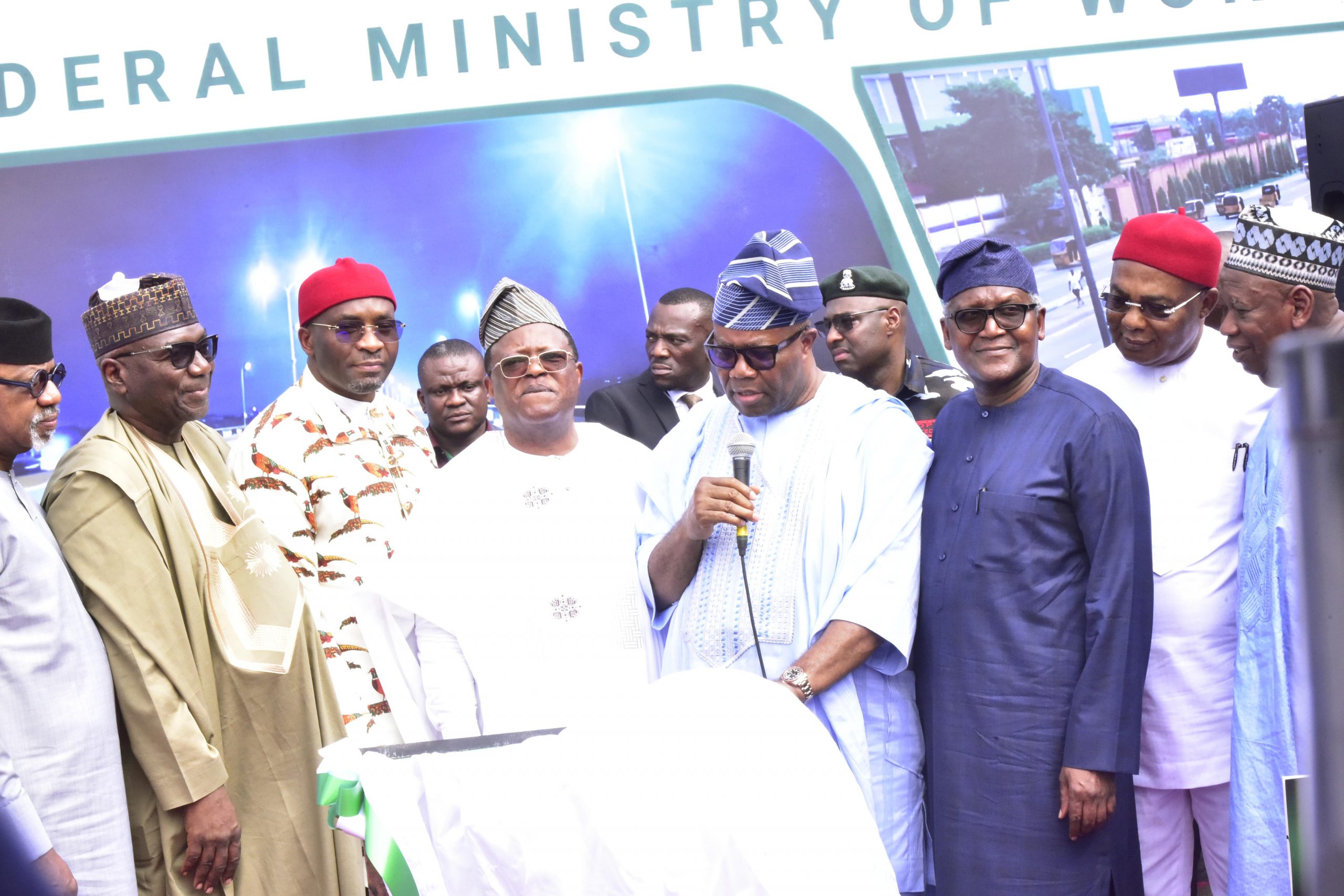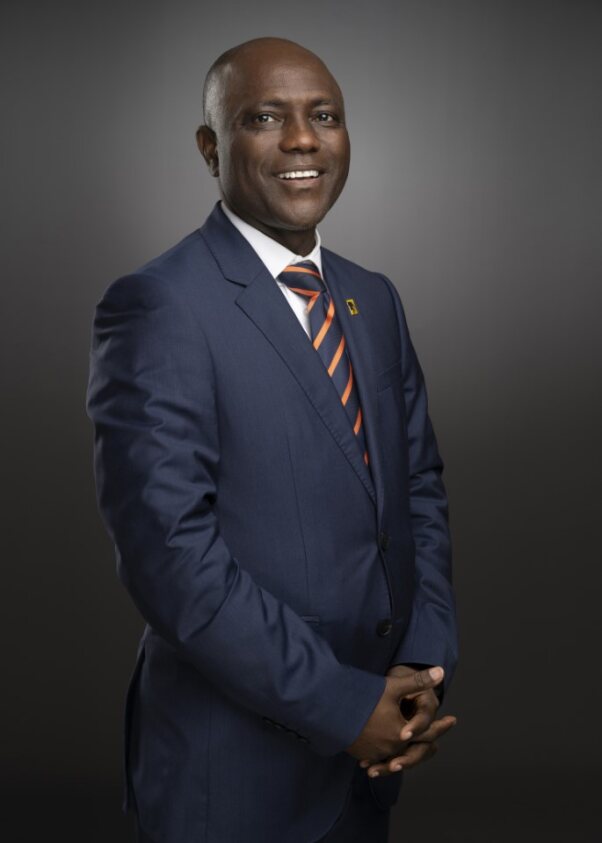
The Governor of Plateau State, Simon Lalong, on Thursday said he advised his Benue State counterpart, Samuel Ortom, against implementing the anti-grazing law on his state.
Clashes between locals and herdsmen had led to the death of several people in Benue State since the beginning of the new year.
Speaking with State House correspondents after meeting with President Muhammadu Buhari on Thursday, Mr. Lalong said his state used to face the same problem as Benue.
He said, however, that his decision to embrace ranching has led to peace in Plateau State. Excerpt:
Q: What dis you discuss with the President?
A: I just returned from my vacation and I felt I should come and see Mr. President especially as my state celebrated Christmas and new year peacefully, to wish him happy new year and brief him on the happenings in the state in the last one year. With the support I am getting from Mr. President, we are having relative peace. So I came to brief him, especially when you see insecurity in neighbouring states, so that if there are areas of improvement, we will also do the improvement so that we don’t have cases like we are seeing.
Q: So what’s the secret to the relative peace you are enjoying in the state?
A: I have said it a number of times, it is a matter of accommodating interests; you take everybody as your own. In Plateau state, I did that because when I came, I inherited a protracted crisis in the state. And so my first priority was how to handle this crisis and ensure we have peace in Plateau State. Within three months, we were able to achieve peace in Plateau State. Most of the lingering crisis were between farmers and herdsmen in Plateau. But today in most parts of the state, you will see beautiful relationship between herdsmen and farmers.
At the end of last year, something small happened. But I’m not saying it was between herdsmen and farmers. It was as a result of criminal activities, and so we focused on fishing out those criminals. Most of the crisis that happened was not on the farm, it was just pockets of people; Christians and Muslims killing one another; and so we addressed those issues, we are handling them.
Let me also say that Plateau was one of those that embraced ranching. I had a lot of opposition initially when I said Plateau was keying into ranching. Some states said they don’t have land but I said whether I have land or not, we have to provide land for ranching, because that I see as solution to the conflicts. In Plateau, we have gone far, we have donated land voluntarily, many people donated land for ranching.
Last year, I sent a 12-man team to the Federal Ministry of Agriculture, they spent almost a week there to study and the team was headed by former Vice Chancellor of University of Jos, Professor Onazi. We went round all the communities in Plateau, it took three months and Plateau people, including the Fulanis accepted that we must embrace ranching.
Ranching as a concept is a policy and there are states realizing the importance of the policy. I cannot wake up like some people said last year that I should go and do anti-grazing law. And I asked: anti-grazing law for what? We are talking about ranching, we are talking about development of livestock business and I cannot use the word anti to start driving people who are interested. It is for those who are interested to come and get involved in it.
Secondly, I can’t implement anti-grazing law. There are levels of implementation which will require government intervention, provision of ranchers. And thirdly, when you are talking of ranching, it is a component of agriculture business, you will also require subsidy. Subsidy must come from federal and state governments. And by the time we develop it and put every structure on ground, then we can bring laws to regulate the implementation. So I don’t want to jump one step before the other.
Q: So why did you not advise your colleagues about this?
A: To be honest with you, I did. I told the Governor of Benue when he was doing the law; I said look, why don’t you tread softly, just be careful, take other steps before you start implementation. But you see, states are different, his own concepts are different and for us on the Plateau is different. I said I will not do the law before implementation. I have not developed the ranching areas, so I cannot go and say I will put a law, to stop who? If I stop the people, what is the alternative?
So I said do consultations, allow the people to understand and buy into the concepts.
Q: You are talking about ranching and the federal government is now talking about colonies, what does that mean?
A: For me, anytime I hear anything about agriculture, I don’t jump into conclusions, I go and study it. Yesterday (Wednesday), I was at the federal ministry with my agricultural team, commissioner and others, we spent almost five hours because I said they must convince me and explain to me what colony is. So that when I go back, just like I did with ranching, I will go and tell my people that this is the concept. When I had the briefing with them, I was convinced about colony.
They said the difference between colony and ranches is that one is bigger than the other. You get a very big field, you get investors, demarcate the area, somebody will ranch bees, somebody will ranch goats, somebody will ranch cattle, but government will develop the place, put grasses, water and anybody who is coming in must pay. And you cannot go and force any land, is voluntary land that government has. For me in Plateau, we have two large areas already, that is the concept and my eyes is already going back.
So, they are saying they are going to visit the place as part of the solution to farmers/herdsmen clashes in my state.
When Plateau wanted anti-grazing law and I asked against who? and they said against a particular tribe. And I said, tell me who in Plateau who is not into open grazing? Seventeen local governments we are all into open grazing. Is either you are grazing cattle, goat, sheep, or even chicken because the law will protect and restrict the movement of all these animals, these are general livestock. If you are talking of this thing, we will take a holistic approach in preparing for implementation. And when you do that, with a lot of consultation like we are done in Plateau… when I got back, I heard the Fulanis were moving from state to state sensitizing their people on the need to embrace ranching.
Q: But people say providing colony is a way of pampering the herdsmen?
A: Let me tell you, nobody said ranching is only for Fulani herdsmen. Like I said, in Plateau, I said ranching is everybody’s business. Many youths, thousands of graduates have registered, ready to go into that business. It is everybody’s business. We must help the federal government to find ways of addressing issues because agriculture is not just agriculture now, it is now a means of diversification. And if you have to diversify, it is serious business for everyone, it is not for a tribe.
So I said if we have to encourage people to go into ranching, I will not use the word anti.
Q: What is your comments regarding the coming local government elections in your state?
A: I want to assure that sometimes when you see conflicts or problems in an election, it is when there is no primaries, when people engage themselves in carnivals.
In Plateau, when you go and ask of the best primaries, they will tell you it was the last primaries organised by the APC. So, if we had good primaries, definitely you can be rest assured that you are looking forward to the best of local government elections.
Q: What was the President’s response after your meeting?
A: He was very happy. Of course, the president is always happy when he hears that, number one, your state is peaceful; and two, that you are paying salaries up to date. For me, salary is no longer an issue. Last December, I started paying gratuity. So, I came to tell him that through his efforts, you can see what bailout is doing to compliment the efforts of what some state governors are doing, so that we don’t start condemning governors anyhow.
In my state, I inherited 11 months arrears and eight months of pensions; and today I have cleared them. I am now into payment of arrears of gratuity and development projects. Let me not forget, part of the visit was to ask for a shift of date in the president’s visit to the state from January to February, and he has agreed. And he said I will come any time you want me to come.





 celebrity radar - gossips5 months ago
celebrity radar - gossips5 months ago
 celebrity radar - gossips5 months ago
celebrity radar - gossips5 months ago
 Business4 months ago
Business4 months ago
 Business4 months ago
Business4 months ago














You must be logged in to post a comment Login